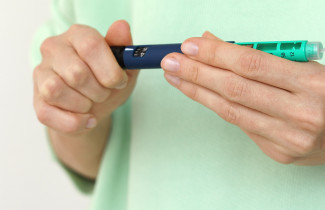Regulatory and health technology assessment (HTA) agencies, academic institutions and patient organisations from six EU countries will improve the use of real-world data (RWD) in regulatory decision-making under a new project funded by the Horizon Europe Programme. The University of Eastern Finland is one of the partners.
The Real4Reg project stands for development, optimisation and implementation of artificial intelligence methods for RWD analyses in regulatory decision-making and health technology assessment along the product lifecycle.
Real-world data on the use of medicine by the general population, such as data from large scale claims databases and registries, are increasingly important to support decision making in terms of health benefits, adverse events in patients and costs for healthcare systems along the medicinal product lifecycle.
However, these data are very large and very complex, and hence approaches using artificial intelligence need to be leveraged. These techniques can identify patterns and predictive models from large data and will thus help regulators and HTA bodies to monitor real-world effectiveness and safety of drugs.
Therefore, the development of new and optimised methods for RWD analyses is essential. Real4Reg addresses the challenges and opportunities of RWD analyses across different health care systems by involving multiple stakeholders to work together in a collaborative approach, also outreaching to already established European initiatives.
“The project involves four different use cases with different medications and/or disease groups. Data from four different European countries are utilised in the cases, including data from Finland’s vast registers in each of them. Our work package pertains to post-authorisation use cases,” says Professor Anna-Maija Tolppanen, who leads the project at UEF.
The consortium consists of ten European partners and is coordinated by the German Federal Institute for Drugs and Medical Devices (BfArM). Other partners are the Fraunhofer Institute for Algorithms and Scientific Computing (SCAI) and the German Center for Neurodegenerative Diseases (DZNE) from Germany, the Aarhus University (AU) and the Danish Medicines Agency (DKMA) from Denmark, the University of Eastern Finland (UEF) and the IT Center for Science (CSC) from Finland, the National Authority of Medicines and Health Products, I.P. (INFARMED) from Portugal, the European Organization for Professionals and Patients with ALS (EUpALS) and the European Institute of Women’s Health (EIWH).
The four-year project starts in January 2023. The overall budget amounts to 7 million euros, with UEF’s share totalling 1.25 million euros.
For further information, please contact:
Professor Anna-Maija Tolppanen, University of Eastern Finland, School of Pharmacy,
https://uefconnect.uef.fi/en/person/anna-maija.tolppanen/



